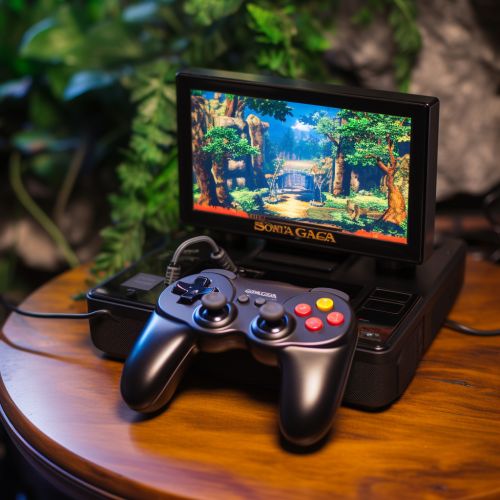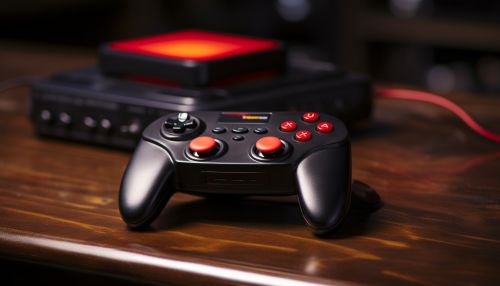Sega Genesis
Introduction
The Sega Genesis, known as the Mega Drive in regions outside of North America, is a 16-bit home video game console developed and sold by Sega. First released in Japan in 1988, in North America in 1989, and worldwide in 1990, it was Sega's third console and the successor to the Master System. The Sega Genesis was one of the two great 16-bit systems of its time, the other being the Super Nintendo.


Development
The Sega Genesis was conceived in response to the growing dominance of the Nintendo Famicom. After the unsuccessful attempts to take the market share from Nintendo with its SG-1000 and Master System, Sega decided to shift its focus to the development of a next-generation console. The console was designed by an R&D team headed by Hideki Sato, Masami Ishikawa, and Mitsushige Shiraiwa. The system's hardware was engineered in a way that would make it easy to convert arcade games into the Genesis format, a strategy that was to prove successful for Sega in the early years of the console's life.
Hardware
The Sega Genesis is a 16-bit console with a CPU running at 7.67 MHz. It has a 64KB main RAM, 64KB video RAM, and 8KB audio RAM. The system's graphics are powered by a custom Yamaha YM7101, which can display up to 61 colors at once from a palette of 512. The sound is provided by a Yamaha YM2612 FM synthesizer and a Texas Instruments SN76489 PSG for backwards compatibility with the Master System.
Software
The Sega Genesis had a strong software lineup from the beginning, thanks to the company's successful arcade division. Early hits included Altered Beast, Golden Axe, and Sonic the Hedgehog, which became the console's mascot and helped to increase its popularity. Over its lifespan, the Genesis library grew to include over 900 games, many of which are considered classics and have been re-released on numerous platforms.
Market Performance
The Sega Genesis was successful in North America and Europe, but struggled in its home market of Japan against its main competitor, the Super Nintendo. Despite this, the Genesis was able to carve out a significant market share, thanks in part to its aggressive marketing campaign and the popularity of games like Sonic the Hedgehog. The console sold over 30 million units worldwide, making it one of the best-selling consoles of its time.
Legacy
The Sega Genesis has left a lasting legacy in the world of video games. Its success helped to establish Sega as a major player in the industry, and its games have been praised for their creativity and innovation. The console has been re-released several times, including as a mini version in 2019, and its games continue to be popular on digital distribution platforms.
